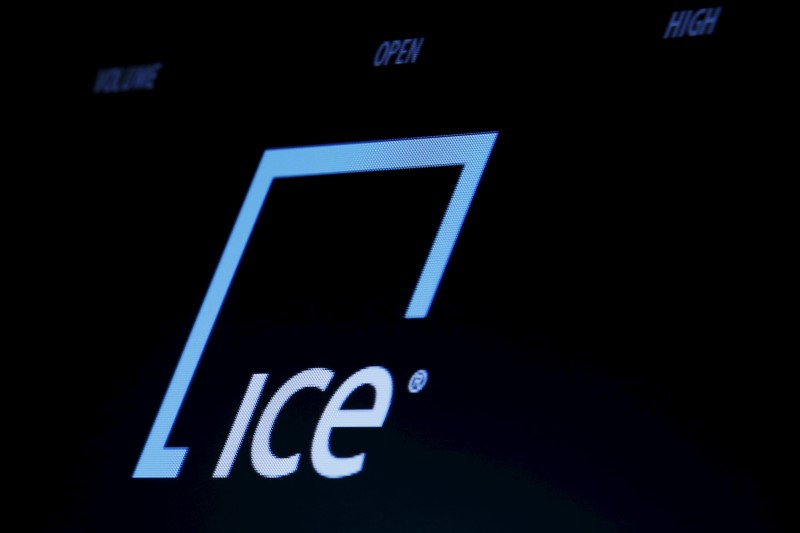By John McCrank
NEW YORK (Reuters) - Intercontinental Exchange Inc (N:ICE) was "fortunate" to have scrapped a potential counterbid for the London Stock Exchange (L:LSE) in May, ahead of Britain's vote to leave the European Union, the head of the New York Stock Exchange operator said on Wednesday.
ICE would have had to make its bid to derail LSE's planned $27 billion (£20.22 billion) merger with Deutsche Boerse (DE:DB1Gn) just ahead of the June 23 referendum, which ICE's management expected would result in "Brexit," or the UK leaving the EU, Chief Executive Officer Jeffrey Sprecher said on a quarterly earnings conference call.
"We decided given that we didn't have good information and given that we thought the landscape was going to change that it was not an appropriate time for us to do a transaction," he said. "I will tell you that I think we were fortunate in making that decision."
ICE, which has futures and clearing operations in Europe, earlier on Wednesday reported a better-than-expected second-quarter profit, with net income up 26 percent at $357 million, or $2.98 per share, from $283 million, or $2.54 per share, a year earlier.
Market volatility following the Brexit vote helped boost volumes for exchange operators in the quarter.
The LSE-Deutsche Boerse merger has received backing from the shareholders of both companies, but it remains unclear whether the deal will get approval from financial regulators in Germany and Britain, along with European Union antitrust authorities.
The head of Germany's markets regulator said in June it was hard to see how the head office of the merged group could be in London given that Britain was leaving the EU.
ICE still has around three months to reconsider and make an offer for LSE, provided it has approval from the British Panel on Takeovers and Mergers, or if the LSE-Deutsche Boerse merger falls through or another bidder comes in for the UK bourse.
But Sprecher said ICE also has other options to expand its footprint in Europe and highlighted the ongoing uncertainty there. He said further fragmentation in Europe following the Brexit vote could create new demands from ICE's customers.

"We're set up for change, but I don't know what the change is going to be," he said. "It's hard for anyone in any position in financial services to discuss what the outcome of Europe is going to look like."